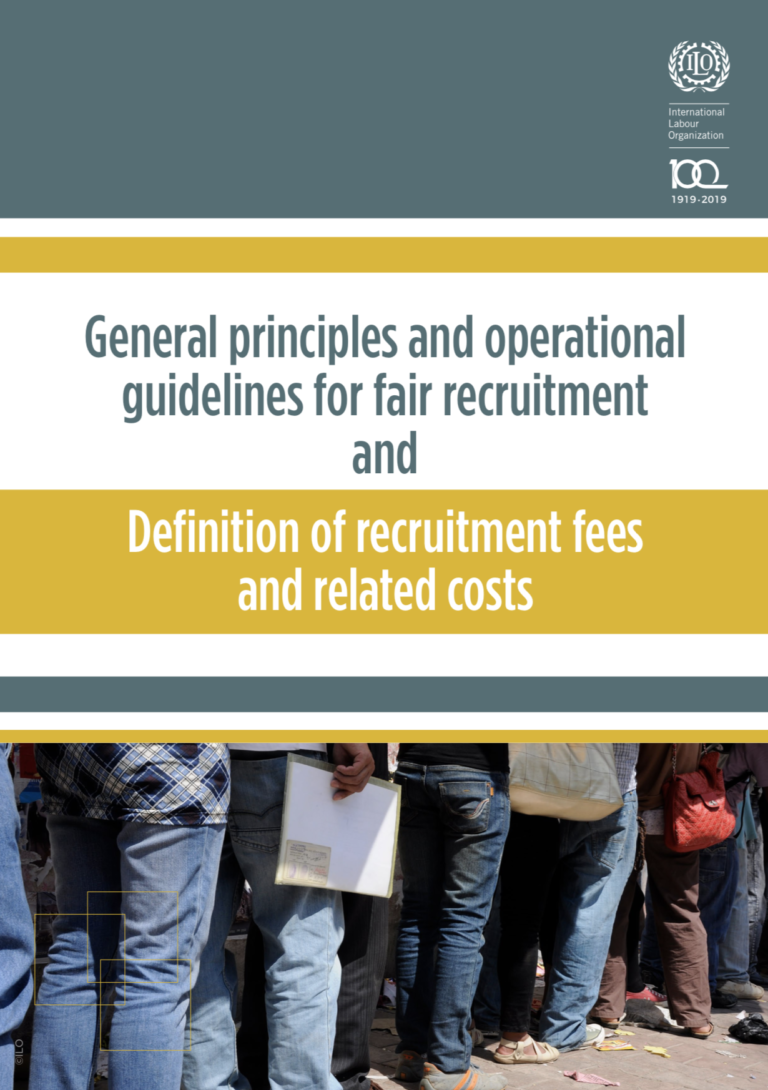The objective of these non-binding ILO general principles and operational guidelines for fair recruitment (hereafter “principles and guidelines”) is to inform the current and future work of the ILO and of other organizations, national legislatures, and the social partners on promoting and ensuring fair recruitment.
These principles and guidelines are derived from a number of sources. The primary sources are international labour standards and related ILO instruments. Other sources and good practices have also been consulted. All the sources are listed in the appendix to this document.
These principles and guidelines are intended to cover the recruitment of all workers, including migrant workers, whether directly by employers or through intermediaries. They apply to recruitment within or across national borders, as well as to recruitment through temporary work agencies, and cover all sectors of the economy. Implementation of these principles and guidelines at the national level should occur after consultation between the social partners and the government.
A distinction is drawn between general principles – which are intended to orient implementation at all levels – and operational guidelines – which address responsibilities of specific actors in the recruitment process and include possible interventions and policy tools.

